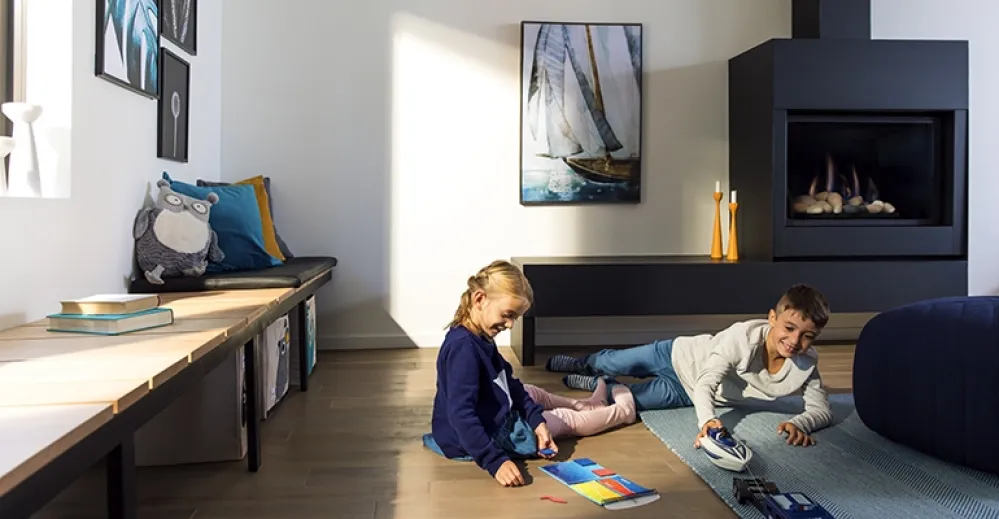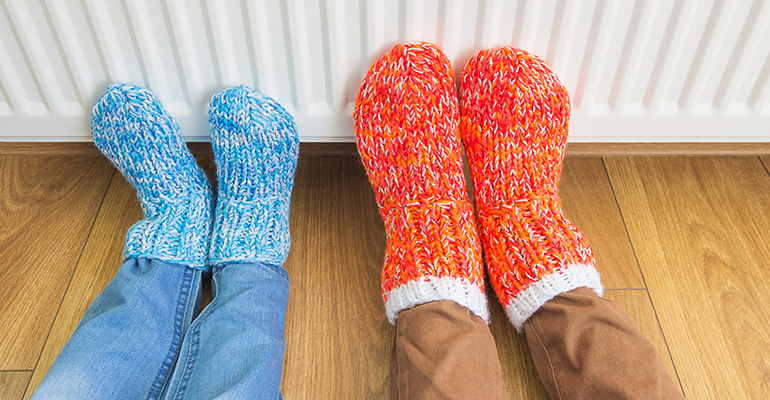
Why the cold drives up heating costs and what you can do about it

It’s the same thing each winter: when temperatures start to drop, heating bills start to rise. This phenomenon is not due to a seasonal rate hike, but rather an upsurge in the amount of energy we consume to stay warm. Below are a few things that affect this increase and some tips to help you consume less energy and to make better use of it.
1. Outside temperature
It’s no secret that the weather has the greatest influence on our energy consumption and, by extension, our energy bill! Why? Because the colder it gets outside, the colder it gets inside, and the more your heating system has to work to keep your home comfortably warm. It therefore consumes more energy, translating into higher costs. Of course, your location also has an impact on your energy bill. For example, winters are generally longer and colder in Abitibi than in Outaouais. It would cost more to heat the same home in Rouyn-Noranda than in Gatineau.
2. Home insulation
To keep your heating bill under control, think about insulating your home properly so it doesn’t let heat escape. For example, in summer, take advantage of the warm weather to replace your windows with more efficient models and, in the fall, take the time to winterize your home by sealing doors and windows with caulking and tuning up your heating system. Also, if you have an older roof, have it inspected to make sure no cold air is coming in. Like a winter coat, your home’s envelope needs to be as airtight as possible to keep you warm and snug!
3. Heating appliances
The efficiency of your appliances has a direct impact on your energy bill. Heating, air conditioning and hot water alone account for nearly 75% of energy costs in Québec homes! While standard or older heating appliances have an efficiency of 75% to 80%, newer models can achieve an efficiency of up to 95%. In other words, standard systems use 80% of the energy they consume to heat a home, meaning that 20% of the energy is lost. In comparison, the energy loss of an appliance with 95% efficiency is 5%, which is very little. By using a high-efficiency appliance, you consume less energy to heat the same space and therefore reduce your energy bill! Our article on the subject provides valuable tips to help you consume more efficiently and explains the importance of your heating appliances (specifically boilers and water heaters), because a well-maintained appliance is more efficient, safer and can last longer.
4. Lifestyle
We all like to be comfortable, but comfort levels aren’t the same for everyone. Some want to spend the entire winter as if they were in Florida―which is understandable―but if you’ve gotten used to setting the thermostat to 25 C, wearing T-shirts all year long and taking hot baths and long showers during the chilly season, it may be time to change your ways. There are plenty of simple actions you can take to reduce your energy bill without sacrificing comfort. Some of these changes can help you save while spending quality time with your loved ones over hot meals or gathering together in front of the fireplace!
So while you can’t control the weather or the vagaries of winter, there are several things you can do to melt your energy bill a little (or a lot!) by making wise choices and tailoring your habits to the season. Your wallet will thank you!
You may also like...





